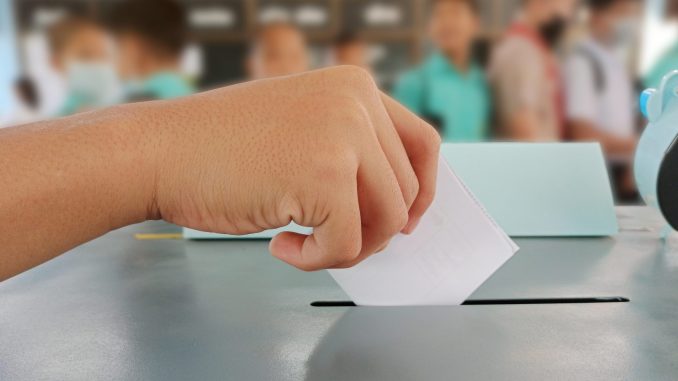
Previously Published in The Messenger
“Every year is an election year,” we hear every year, ad nauseum.
That’s the funny thing about cliches: they wouldn’t be cliché if they didn’t have at least some degree of truth to them.
In this case, cliché is an overstatement.
Instead of looking at it as another pilgrimage to the polls, or a popularity contest of which team can get more of their guys to the polls, look at this way: This election can dictate where 70% of your property tax dollars go.
In our opinion, that’s enough for us to put school board elections on the top of our personal priorities.
Voting for president can be fun. It feels like you’re part of something. Especially in divisive times like this, the lame “I Voted” sticker almost seems like a badge of honor won from an ideological battlefield where the ceasefire is held at a local diner for brunch.
Voting in congressional elections can, depending on where you live, be a bit more dynamic. Congressional races around here certainly have been in the last ten years or so. These are direct pipelines to the federal government whom you often have a decent chance of meeting and/or interacting with. In other cases, your vote feels more powerful by checking the most powerful man (or woman) in the world by denying them extra votes in the lower chamber. The moniker “the People’s House” is apropos.
Voting in local county and town elections almost seem like a lost cause when we get so mired in Washington and international politics, despite the fact that many of these people not only make decisions that affect your daily lives and dollars more than Donald Trump (R-FL) or Joe Biden (D-DE). Not only that, the local elected officials are, in our opinion, significantly less likely to sell their own communities down the river.
But voting in a school board election almost seems like something that only true “committed” political junkies can understand, or that you have nothing better to do on a Tuesday evening in May.
Those preconceived notions could not be further from the truth, considering the sheer weight on the wallets these elections can carry.
Let us be clear: casting your ballot on Tuesday, May 20, for your Board of Education, budgets, and/or capital expenditures will not automatically make your tax dollars fly back into your checking account – at least, not necessarily.
While the Board of Education and the superintendents are perhaps the first and foremost stewards of the lion’s share of local tax revenue as far as who’s on the ballot, they’re overshadowed by only one other form of control: the voter.
It seems obvious, but apparently it’s not. School board elections see some of the most abysmal turnout possible. Some argue that holding school board elections concurrently with regular, partisan elections could help boost turnout, but these elections need to exist in a vacuum. Simply packing the ballot to increase turnout dilutes the sanctity of local, nonpartisan – at least nominally – elections deserve. No longer would school board elections be about a budget being stretched as much as it can, improving district services, and fostering a clear chain of command through which parents, students, and faculty alike can escalate their problems and concerns. Instead, it would take on the touch-and-go emptiness of partisan politics. No listening, no learning, no tough decision making.
It’s the same argument we’ve had against New York’s even-year election laws. We’ve espoused before that local elections must exist in a vacuum for their own sake, devoid of the top-of-the-ticket energy that would certainly drown out any room for partisans to pitch a softer message to voters and for mavericks to make names for themselves.
In the same way, school board elections are concentrated on the voter for this reason. Yet, they seem unheeded by most of the public.
Tuesday, May 20, is your local school board election. Flipping a seat on the board or passing a capital expenditure might not solve all of your immediate problems, but better to get some understanding now and cast a vote when it matters than finding yourself swimming upstream when your tax dollars are disappearing and your child’s education is languishing.

